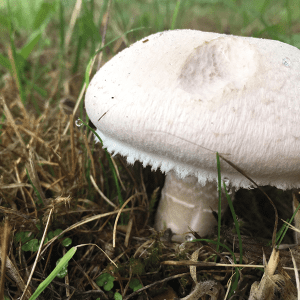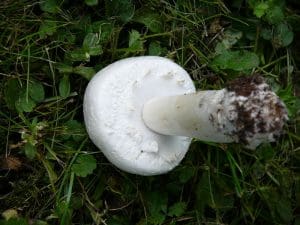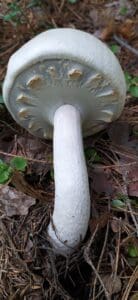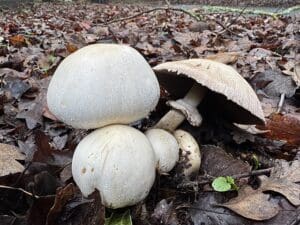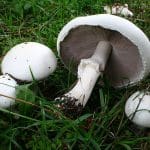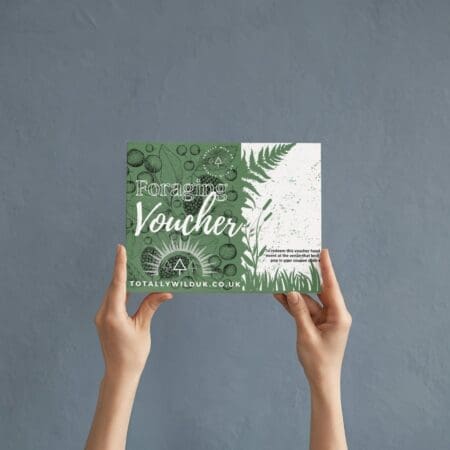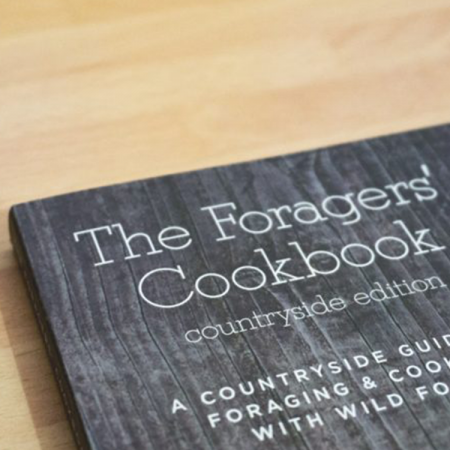Horse Mushroom / Summer / Autumn / Edible
Welcome to a world of culinary delight as we celebrate the savory treasures of the Horse Mushroom (Agaricus arvensis).
Join us on a journey where gastronomy meets elegance. With its noble appearance and distinct features, the Horse Mushroom stands as a majestic culinary gem.
Learn to identify its unique characteristics, discover its preferred habitats, and delve into the culinary wonders it offers. From its firm and fleshy texture to its delicate, nutty flavour, this mushroom has the power to elevate your culinary creations to extraordinary heights.
Whether you are an experienced forager or an adventurous home cook, let this Mushroom inspire your culinary endeavours and tantalise your taste buds with its marvellous flavours. Embrace the abundance of nature’s bounty as we celebrate the enchanting delights that lie within the Horse Mushroom. Get ready to embark on a flavour-filled journey as we explore the captivating culinary possibilities offered by this remarkable fungus.
Common Name
Horse Mushroom
Botanical Name
Agaricus Arvensis
Family
Agaricaceae
Habitat
This is a saprophytic mushroom (meaning it lives on decaying organic matter) it loves well-manured pastures and grassland, often growing in rings.
the Horse Mushroom is a common mushroom in Britain and Ireland as well mainland Europe and parts of Asia and North America, the Horse Mushroom has also been found in Australia as well as New Zealand
Our Horse Mushroom Foraging Video
Physical Characteristics of the Horse Mushroom
Cap
The cap is a creamy white colour, dome-shaped when young and flattening out with age.
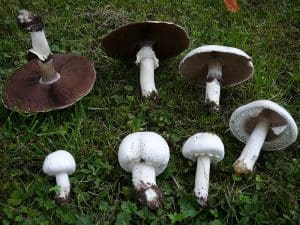
Gills
Gills start off pale salmon pink and turn dark chocolate brown and eventually black with age, they are crowded and free of the stem.
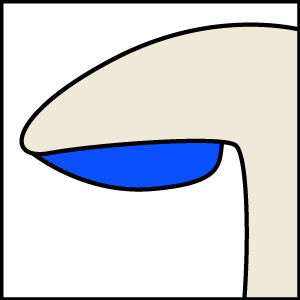
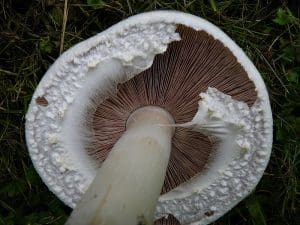
Stem & Skirt
The stem has a double ring (skirt) which when still attached to the cap looks like a cogwheel pattern.
Flesh stains a pale yellow colour when bruised.
Smell
Strong Aniseed Smell
Spores
Dark Brown
Known Hazards
Can accumulate heavy metals such as copper
Could be confused with
Yellow Stainer, (Agaricus Xanthoderma) this mushroom stains quickly bright yellow when touched, cut or bruised, the horse mushroom stains slightly yellow and its a slow reaction, it also smells very unpleasantly of iodine whereas the horse mushroom smells of aniseed.
Click here for a full ID guide on Yellow Stainer Mushrooms
Edible Use
Delicious edible mushroom, good for frying, stews, pate, etc.



